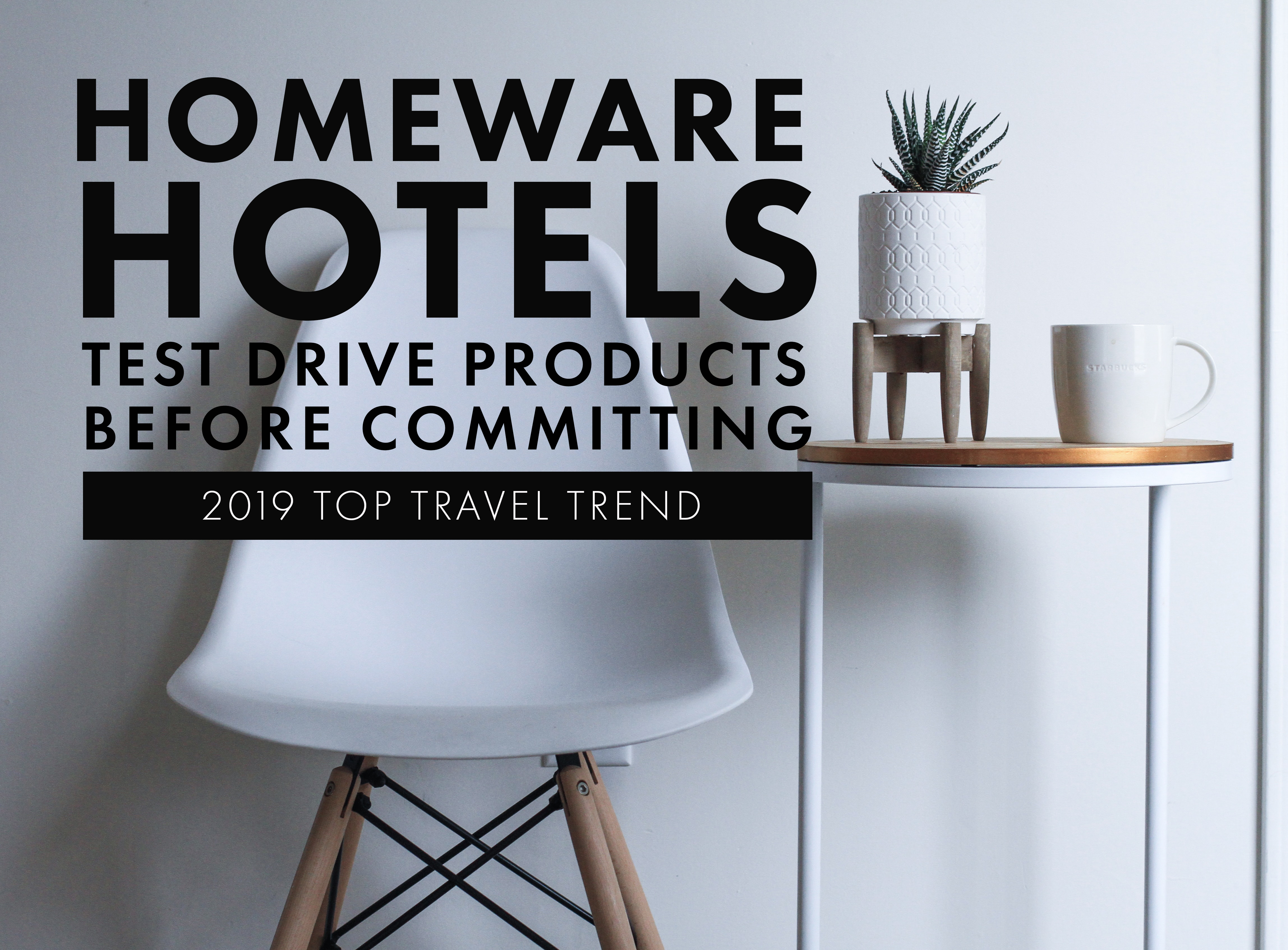With businesses looking for opportunities to reach new audiences and promote their products in unique ways – it’s really no wonder that homeware companies have begun opening their own hotels.
It’s a shift that goes beyond their concept stores and allows guests to purchase much of what they see inside. Pulling inspiration from the automotive industry retailers wanted to give consumers a way to ‘test drive’ products before they commit to buying.
Chic interiors website Made.com opened a barge-turned-hotel called the Boathouse in London which was inspired by Scandinavian living created by designer Kate Hanton. Design features include claimed wood paneling, grey sofa, marble-top surfaces, copper lights, and Egyptian cotton sheets. They also pioneered the homeware hotel trend – when they launched their first MADE hotel in Manhattan’s NoMad district two years ago. Since then we’ve seen a number of retailers following suit.
At the beginning of 2018, Japanese brand Muji opened two properties in Shenzhen and Beijing where you can fully enjoy Muji products and services. Muji promises that they do not offer exorbitantly priced and superfluent services nor dreary guest rooms resulting from the extreme reduction of quality. Instead, they promise a reasonable price space in which you will sleep well, restoring both mind and body, as well as services that naturally connect you to the locale. Goods for sale include oak chairs, toothbrush stands, duvets, feather pillows, and clear plastic shampoo bottles.
West Elm—the housewares company known for its effortlessly cool and modern aesthetic will be opening their first of several US hotels in 2020 but they are going far beyond simply creating a homeware hotel – they want to make it personal. The hotel will offer sleep education and how overall wellness has a serious impact on travel, and the innkeeper will cater to the traveler’s every need more so than a typical concierge-like a bed & breakfast owner meets that cool in-the-know friend. The concept will also be hyper-local. Sitting on West Elm’s “Hamilton” leather sofa, you might kick up your feet on a coffee table made by an area woodworker, which is West Elm stores’ practice of featuring work by local makers. Each room will have art commissioned by Indy artists.
Meanwhile, Danish brand Vipp has been launching unique one-bedroom design hotels, where you can ‘test drive your kitchen before you buy it’, across Copenhagen and Lake Immeln.
Soho House recently opened an outpost in Mumbai with 38 rooms; although the members’ club came first, the company’s spin-off Soho Home site now sells everything from bathrobes to cut crystal glassware.
Targeting the hospitality industry gives retailers the power to create entirely new product experiences. The key to this, however, is striking a balance between the retail and hotel experience, ensuring that product placement doesn’t come across too obtrusive. Not only does this create another revenue stream but this ‘try before you buy’ strategy benefits brands as well as consumers, with retailers referring to guest feedback in their product development.
When booking your next getaway – will you consider a homeware hotel?


